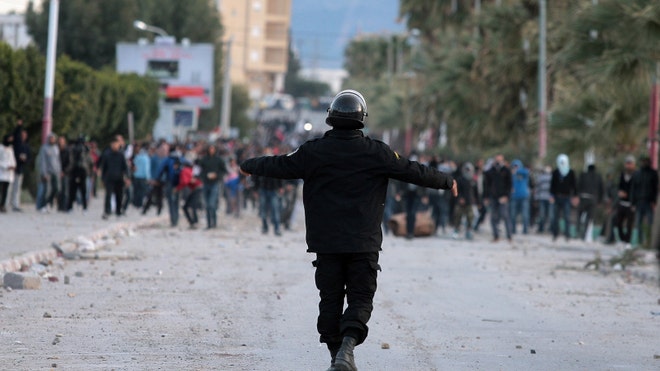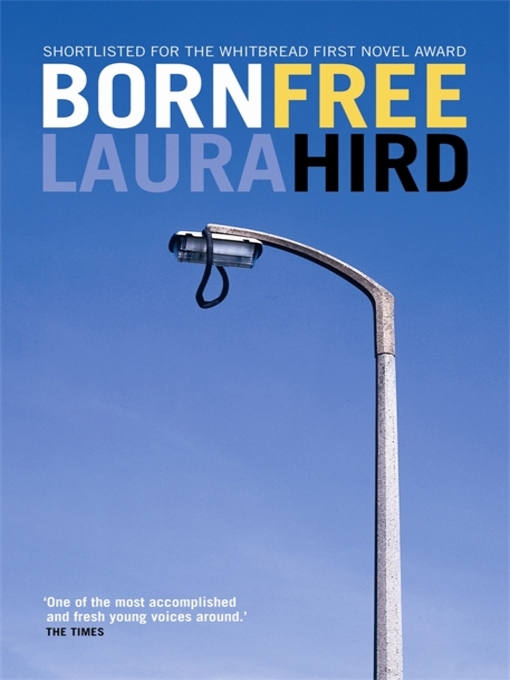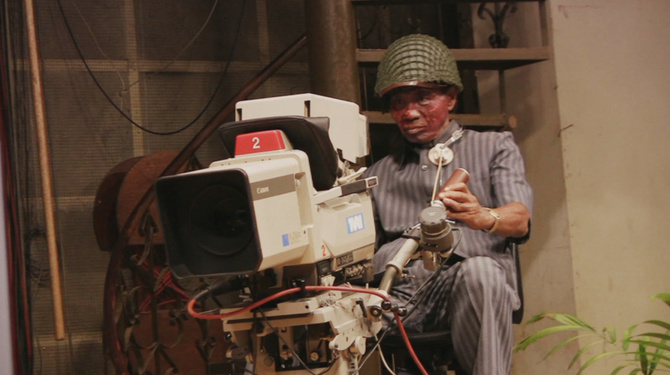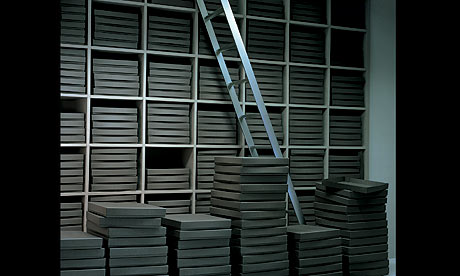Posts by David
Reflections on Politics and Violence seminar, March 5th

Wednesday 5th March, 13:00-15:00
The Westminster Forum, 5th Floor, University of Westminster, 32-38 Wells Street, London W1T 3UW
Kimberly Hutchings and Elizabeth Frazer
“Reflections on Politics and Violence”
Kimberly Hutchings is Professor of International Relations at the London School of Economics. Her main research interests are in international ethical and political theory, feminist ethical and political theory, and the work of Kant and Hegel. She is the author of Kant, Critique and Politics (Routledge, 1996), Hegel and Feminist Philosophy (Polity, 2003), Time and World Politics: Thinking the Present (Manchester, 2008) and Global Ethics: An Introduction (Polity, 2010).
Full list of the Faculty ‘On Violence’ seminars can be found online here
Reminder: Cold War Systems Symposium, Feb 27th

The Continuities of Cold War Systems: A Symposium
Thursday 27th February 2014, 9am-6pm.
The Boardroom, University of Westminster, 309 Regent Street
Hosted by John Beck (Westminster) and Ryan Bishop (Winchester School of Art), participants include Ele Carpenter (Goldsmiths), Fabienne Collignon (Sheffield), Mark Coté (King’s), Dan Grausam (Durham), Ken Hollings (Middlesex), Adrian Mackenzie (Lancaster), Jussi Parikka (Winchester), John Phillips (Singapore), Adam Piette (Sheffield), Jennifer Pybus (Winchester), James Purdon (Cambridge), Aura Satz (London Consortium), Neal White (Bournemouth).
From the late 1940s through the 1980s systems analysis, cybernetics, and information theory came to shape military, business, government and academic thinking on a wide array of subjects. The influence of such thinking is also evident in the arts, from the so-called systems novels of the 1960s and 70s, to minimalist and electronic music, conceptual art, and the emergence of electronic media. The end of the Cold War did not end systems thinking; indeed, given the phenomenal expansion of computer technologies into every aspect of contemporary life it is fair to say that we are now living in a world imagined and engineered during the Cold War. This event seeks to address the ways the Cold War, particularly through a consideration of systems thinking, continues to shape the contemporary.
RSVP John Beck: j.beck@westminster.ac.uk.
Tagged as ecology, science, technology, Theory, war
Violence Seminars 3: Michael Dutton on China, Feb 26th

Wednesday 26th February, 13:00-15:00
The Westminster Forum, 5th Floor, University of Westminster, 32-38 Wells Street, London W1T 3UW
Michael Dutton (Goldsmiths)
“Becoming Political: My China”
Michael Dutton is Professor of Politics at Goldsmiths, University of London, and author of, among other texts, Beijing Time (Harvard, 2008) and Policing Chinese Politics (Duke, 2005).
Full list of the Faculty ‘On Violence’ seminars can be found online here
Professor John Beck Inaugural lecture, March 5th

Wednesday 5th March 2014, 6pm
Fyvie Hall, University of Westminster, 309 Regent Street, London W1B 2HW
“Catastrophic Futures and Applied Fiction”
Professor John Beck (University of Westminster)
Asteroid impact, pandemic, earthquake, resource depletion, nuclear war, toxic waste, bioterrorism: the list of potential global catastrophes is long and seemingly unlimited. The scale of such threats is so immense that the possibility of grasping their implications is often beyond everyday comprehension. Yet there are experts and organisations around the world grappling with plausible catastrophic scenarios, from asteroid tracking facilities and geo-engineering enterprises to space colonisation projects and repositories for genetic information and long-term nuclear waste sequestration. Each of these projects requires the extraordinary task of linking the quotidian to the unimaginable, of moving from fact to fiction. How are these links made? How is the fantastic grounded in the material world of real places and people? How does the kind of thinking more commonly found in the arts and humanities contribute to projects involved in catastrophe prediction and management? Writers, artists, and architects are often an integral part of projects dealing with long-term solutions to catastrophic threats. This involvement goes beyond the functional role of illustrating or articulating scientific and engineering proposals, and is intrinsic to the epistemological challenges faced when attempting to imagine and shape notionally unthinkable scenarios. This lecture considers a range of ‘applied fictions’ in order to explore how arts and humanities methodologies are embedded in any critical engagement with the prospect and prevention of future catastrophe.
John Beck joined the Department of English, Linguistics and Cultural Studies at the University of Westminster in 2013. He writes mainly about modern and contemporary art and literature that is concerned with the politics of place. In his first book, Writing the Radical Center (2001), the avant-garde constructivism of American modernist poet William Carlos Williams is read as a means of situating the local – in this case industrial New Jersey – as the bedrock of creative democracy. More recently, Dirty Wars (2009) approaches the permanent militarisation of the Western US after Pearl Harbour through analysis of literary responses to the military-industrial de- and reformation of purloined Western landscapes. Overlapping issues of war, environment and secrecy continue to shape Beck’s research, which is currently focused in two main areas: exposure and hiddenness in landscape photography, and the imagination of catastrophe. His latest work in these areas has been concerned with abstraction in aerial imaging, projects for terraforming Mars, and contemporary ruinenlust.
Register online at: https://www.eventbrite.co.uk/e/inaugural-lecture-series-2013-2014-catastophic-futures-and-applied-fiction-tickets-7899384271
On Violence seminars: The Crime of Genocide Denial, Feb 19th
Wednesday 19th February, 13:00-15:00
The Westminster Forum, 5th Floor, University of Westminster, 32-38 Wells Street, London W1T 3UW

Paola Forgione, Pavia
“The Crime of Genocide Denial”
Paola Forgione is a PhD candidate at the University of Pavia in Italy, where she researches genocide prevention. Her thesis focuses on genocide denial and incitement to genocide. Paola is also a lawyer in Italy and worked as an intern in the Pre-Trial Division of the International Criminal Court in The Hague.
Full list of the Faculty ‘On Violence’ seminars can be found online here
Laura Hird literature research seminar, Weds 19th

Wednesday 19th February, 4.00pm
Room 106, University of Westminster, 32-38 Wells Street, London W1T
“No Horizons: Queering the Scottish Devolutionary Moment in Laura Hird’s Born Free”
Kate Turner, University of Westminster
Taken from a broader research project entitled ‘The Queer Moment: Post-devolution Scottish Literature’, this paper seeks to queer the nation which, in Lauren Berlant and Elizabeth Freeman’s words, ‘touts a subliminal sexuality more official than a state flower or national bird’ (‘Queer Nationality’ 195). Specifically, my research explores the queer potential that stems from Scottish devolution in 1999 and tracks this through to the referendum on Scottish independence to be held 18th September 2014. The paper considers Scottish devolution a site of rupture for Scottish nationhood; so often imagined into being with reference to its lack or loss of statehood, it is argued that Scotland finds itself at a disorientating moment of introspection in the wake of its own devolution. Within this context the paper offers a queer reading of Laura Hird’s Born Free (1999) using Lee Edelman’s No Future and Judith Halberstam’s In a Queer Time and Place. This analysis examines the breakdown of the nuclear family, uses Edelman’s term ‘reproductive futurism’ to regard devolution as queerly ‘beyond the horizon’, and uses Halberstam’s ideas to explore Hird’s characters as ‘queer subjects’. Through attention to the Scottish devolutionary setting of the text, the paper then draws links between Born Free’s queer aspects and this moment in order to conceptualise the disorientating impact of devolution, and the queer potential of this.
Photography in Rwanda After the 1994 Genocide seminar, Weds 12 Feb
Wednesday 12th February, 1.00-3.00pm
Westminster Forum, 5th Floor, University of Westminster, 32-38 Wells Street, London W1T
“Enduring Violence: Photography in Rwanda After the 1994 Genocide”
Zoe Norridge, King’s College London
Dr Zoe Norridge joined King’s College London in 2012. Prior to King’s she was a Lecturer in Modern and Contemporary Literature and Director of the Aftermaths Research Strand at the University of York, Department of English and Related Literature. Since being selected as one of ten inaugural “New Generation Thinkers” by the BBC and AHRC in 2011, Zoe has made several short pieces for Radio 3. She also writes book reviews for The Independent and The TLS.
Roundtable on Violence, Feb 5th POSTPONED
NOTE: Apologies – due to the tube strike, the cross-faculty seminar ‘on violence’, scheduled is postponed. Instead of an opening round-table, we shall have a rounding up table at the end of the series, on Wednesday 26th of March.
Wednesday 5th February, 1.00-3.00pm
Westminster Forum, 5th Floor, University of Westminster, 32-38 Wells Street, London W1T
Special Roundtable on Violence to launch the new Faculty Seminar Series.
Participants including David Cunningham, Sasha Darke, Harriet Evans, Debra Kelly, Ben Pitcher, Tom Moore and Andreas Philoppopolous-Mihalopolous
Chaired by Lucy Bond (Westminster)
Reading and Exhibiting Nature: An International Conference, Feb 7-9

February 7-9 2014
University of Westminster, 35 Marylebone Road, London NW1 5LS
Reading and Exhibiting Nature: An International Conference
In January and February 2014 Ambika P3, the flagship exhibition space at the University of Westminster, will present Out of Ice by visual artist Elizabeth Ogilvie. This new commission will involve environments created with ice and ice melt, constructions, films of ice systems, film of scientific expedition from Antarctica, and poetic film, much of it created through collaborations with Inuit in Northern Greenland, and reflecting on their deep and sustaining relationships with ice. The exhibition will portray the psychological, physical and poetic dimensions of ice and water and draw attention to ice processes. It will describe the presence of ice in the world from a human perspective in which the observational traditions of fieldwork will be combined with the artist’s trademark visual splendour.
In concert with the exhibition, the University of Westminster is convening ‘Reading and Exhibiting Nature’, a three-day conference examining how nature is being understood in contemporary cultural and artistic production. With a focus both in and beyond the polar regions, we will explore how artists and scientists are apprehending and representing natural phenomena, engaging with emerging non-human materialities and translating environmental data into aesthetic experience. The conference seeks to explore the shifting definitions of nature and how nature, including plants, animals, land, water/ice and weather inserts itself into human affairs and is represented culturally.
The ‘Reading and Exhibiting Nature’ conference is planned in association with the University of Westminster and co-hosted by Universities of Aberdeen and Edinburgh and Anchorage Museum, Alaska.
Keynote Address will be by Professor Tim Ingold, Chair of Social Anthropology at the University of Aberdeen
Full conference: Standard rate £200. One day rate £110; Student rate £90. One day rate £65.
Please see the draft programme and some hotel suggestions.
Tagged as art, ecology, visual culture
English Research Seminar: Blanchot and Phantom Limbs, Weds 5 Feb POSTPONED

NOTE: Apologies – due to the tube strike, the seminar is postponed. We will arrange with Monika to reschedule this at another time.
Wednesday 5 February, 4pm
Room 106, University of Westminster, 32-38 Wells Street, London W1T
Monika Loewy, Goldsmiths
“The Problem with Unity: Body Identity Integrity Disorder, The Phantom Limb and Maurice Blanchot”
Body Identity Integrity Disorder (BIID) is a condition in which a person desires to amputate a limb because she feels that it does not belong to her body. A phantom limb can be identified when someone who loses a limb feels as though she still has one, which causes her pain. Together, the phantom limb and BIID syndromes foreground examples of individuals who cling to fictional concepts of wholeness as a result of their perceived incompleteness. This paper connects these situations to an idea central to poststructuralist thought: that language is composed of false images of unity that hide its negation, the eternal referent. The paper explores this relationship through the writings of Maurice Blanchot, arguing for a conceptual framework through which language can be seen as a physical and mental coping mechanism – a compensatory system that offers a tentative ‘presence’ to the unknown or the absent signified. Developing these thoughts through Blanchot’s essay “Orpheus’s Gaze” (1982), it is argued that like the text and the limb sufferers, Orpheus lives in a broken body that is both present and absent at once, implicating the referential structures of language in (traumatic) encounter with the physical body.
Autobiography and the Archive screening, Thurs 30th January

A reminder of ‘Autobiography and the Archive’, a screening of work by Uriel Orlow, Miranda Pennell, and Sarah Purcell exploring the archive, collective memory, and personal history, curated by Mnemoscape for our regular partners at the Whitechapel Gallery and sponsored by the Institute. The screening is from 7-9pm on Thursday 30th January 2014, tickets £8.50/£6.50 concessions. Flier attached here: MS — Autobiography and the Archive (1).
The screening will be preceded by a drinks reception in the Creative Studio at the Whitechapel to celebrate the publication of the Journal of Visual Culture’s ‘The Archives Issue’. The special issue features contributions from Sas Mays and Marquard Smith, alongside Basel Abbas and Ruanne Abou-Rahme (with Tom Holert), susan pui san lok, Uriel Orlow, Chris Horrocks, Shezad Dawood (and Mark Bartlett), Nina Lager Vestberg, Gary Hall, and Trevor Paglen and Juliette Kristensen.
Tagged as archive, art, cinema, visual culture
Queer London Forum LGBT History Month events

The Queer London Research Forum, along with the University of Westminster LGBT network, is organising a series of events as part of the celebrations for LGBT History Month. Places are free, but need booking in advance. You can register by emailing: queerlondonresearchforum@gmail.com, stating which event(s) you’d like to attend.
The Ageing Queer Populations of London
Monday 17th February, 7pm
The Boardroom, University of Westminster, 309 Regent Street
This panel discussion will explore the challenges, opportunities and difficulties facing London’s ageing queer populations. How do older queer populations experience London and how do they read it differently? In part, the event will also consider how soap operas offer a frame through which London’s ageing queer populations might understand the city and its issues. Speakers for the event include Kate Hancock (Opening Doors London), Dr. Nicola Humberstone and others (tbc). The event will be followed by a wine reception.
Screening of Touch of Pink (2004), followed by a Q&A with writer and director Ian Iqbal Rashid.
Tuesday 18th February, 7pm
Lecture Theatre, University of Westminster, 4-12 Little Titchfield Street
London’s Queer Literatures
Friday 21st February, 8pm
Room 451, University of Westminster, 309 Regent Street
For this event we will be joined by a number of writers whose work engages intricately with the relationships between London and queerness, each of whom will be reading from their work. We’re excited to welcome Jonathan Kemp (London Triptych, The Penetrated Male Body), Neil McKenna (Fanny and Stella, The Secret Life of Oscar Wilde) and others (tbc). Preceded by a wine reception in the Regent Street foyer at 7pm.
Further details of these events, including biographies of the participants, can be found on the Queer London website (www.queerlondonforum.co.uk) in the ‘LGBT History Month’ section.
The Lodger, BFI, January 20th

Our own Alex Warwick, co-editor of Jack the Ripper: Media Culture History, will be introducing John Brahms’ 1944 version of The Lodger as part of the BFI’s Gothic Season on Monday 20th January, 8.45 pm.
Get your ticket here.
Reminder: Kreider + O’Leary, Jan 17th

Kreider + O’Leary, ‘Ways to Cut the Earth Open’
Friday 17 January, 7pm
The Old Cinema, University of Westminster, 309 Regent Street
‘Ways to Cut the Earth Open’ is a cross-platform survey that examines a number of sites recently explored by Kreider + O’Leary in their nomadic practice. Using the sectional cut and the filmic splice as starting points they explore strands from their recent site-based works to thread together narratives of place and displacement. Predicated on an aesthetics of response while engaging with the complexity inherent in a given site, their work is both a form and act of communication: therefore, and necessarily, clouded by ambiguity. This prompts a critical investigation into the role of ambiguity for creative practices that relate to site, including writing and the moving image.
Kreider + O’Leary are a poet and architect who collaborate to make performance, installation and time-based media work in relation to sites of architectural and cultural interest. Since 2003, they have worked collaboratively to construct work in prisons, churches, military sites, film locations and desert environments, as well as in more traditional gallery venues across the UK, Europe, the US, Australia, and Japan. Their work ‘Light Vessel Automatic’ was exhibited at Performing Architecture at Tate Britain in February 2013. They are currently exhibiting a new work entitled ‘Edge City’ at the Lisbon Architecture Triennale.
Visit: http://www.kreider-oleary.net/
All welcome
Tagged as Architecture, art, cinema, visual culture
Thinking Violence seminar series

Social Sciences and Humanities Faculty Seminar Series: On Violence
All seminars will be held on Wednesdays, 1.00-3.00pm
Westminster Forum, 5th Floor, University of Westminster, 32-38 Wells Street, London W1T
February 12th 2014
Zoe Norridge (Kings), “The Enduring Violence of Images: Photography in Rwanda after the 1994 Genocide”
February 19th 2014
Paola Forgione (Pavia), “The Crime of Genocide Denial”
February 26th 2014
Michael Dutton (Goldsmiths), “Becoming Political: My China”
March 5th 2014
Kimberly Hutchings (LSE) and Elizabeth Frazer (Oxford), “Reflections on politics and violence”
March 12th 2014
Daniella Naj (Queen Mary), “Different Shades of Violence: The Portrayal of Wartime Female Identity in International Criminal Tribunals”
March 19th 2014
Illan Wall (Warwick), “On Crowds”
March 26th 2014
Roundtable on Violence, with participants including David Cunningham, Sasha Darke, Harriet Evans, Debra Kelly, Ben Pitcher, Tom Moore and Andreas Philoppopolous-Mihalopolous
Chaired by Lucy Bond (Westminster)
Lou Reed: Rock as Minimal Modernism

For those of an art rock bent, David Cunningham’s ‘obituary’ of Lou Reed is now up as a freebie on the Radical Philosophy website here: http://www.radicalphilosophy.com/obituary/rock-as-minimal-modernism
Tagged as Modernism, music, radical philosophy
Archives for the Future conference, March 29th

Archives for the Future: An Art and Visual Culture Conference
Saturday 29th March 2014, 9.30-5.00
Fyvie Hall, University of Westminster, 309 Regent Street, London W1B 2HW
Organised by Mnemoscape with the support of the Institute for Modern and Contemporary Culture.
Keynote Speakers: Francis Gooding (Birkbeck) and Uriel Orlow (Westminster)
Archives are becoming increasingly fetishized and (an)aestheticized in contemporary art practice and academic discourse. This conference comes out of a shared sense of frustration at this. In response, it intends to explore the present and futuristic potential embedded in the archive. Archives have generally been considered as conservative institutions aimed at preserving the past in the present – and so perpetuating the traditional structures of power. In contrast, we are interested in bringing to light the generative and creative side of the archive, what Derrida has defined as its ‘institutive’ power. How can archives be used to generate the ‘new’ and to convey possible alternatives to the present status quo? How can we turn archives from historical records into instruments of future planning and agencies of radical thinking? Is it possible to build an archive which works as an open space of imagination and a mean of projection into the future? Is it possible to archive the future to come and, at the same time, to remain open to the unpredictable and the unknown?
Further details and programme at: http://archivesforthefuture.wordpress.com/
For more information about the conference, please contact the conveners, Elisa Adami and Alessandra Ferrini at mnemoscape@gmail.com
Tagged as archive, art, visual culture
The Archives Issue launch, Whitechapel Gallery, Jan 30th

There will be drinks and nibbles at the Whitechapel Gallery (5:30pm onwards) on Thursday 30th January 2014 to celebrate the publication of the Journal of Visual Culture’s ‘The Archives Issue’. The special issue features contributions from Sas Mays and Marquard Smith, alongside Basel Abbas and Ruanne Abou-Rahme (with Tom Holert), susan pui san lok, Uriel Orlow, Chris Horrocks, Shezad Dawood (and Mark Bartlett), Nina Lager Vestberg, Gary Hall, and Trevor Paglen and Juliette Kristensen.
The launch will be followed (at 7-9pm, tickets £8.50/£6.50 concessions) by ‘Autobiography and the Archive’, a screening of work by Uriel Orlow, Miranda Pennell, and Sarah Purcell exploring the archive, collective memory, and personal history, curated by Mnemoscape (ex-MA students in the IMCC, Elisa Adami and Alessandra Ferrini).
Call for Papers: Football, Fiction, and Culture, June 2014

Call for Papers: Football, Fiction, and Culture
Kingston University, June 19-20 2014
The aim of this event is to examine the culture that develops around football, with particular focus upon the influence of the sport on other cultural media. Football is a prominent part of contemporary culture, and the strong influence that it has on social and political identities is often reflected in wider cultural production. Despite this, it is sometimes argued that football is an example of low or “mass” culture, removed from “high” cultural forms. This event will interrogate this viewpoint and attempt to demonstrate the sport’s influence upon a wide variety of cultural forms. We welcome abstracts examining any aspect of the role that football plays in cultural production.
Conference fees are yet to be decided, but our aim is make this an affordable event. We also hope that presenters will join us afterwards to watch a World Cup match or two.
Please send abstracts to the event organisers, Dr Anthony May (Kingston University) and Dr Christopher Daley (University of Westminster) at: footballfictionandculture@gmail.com.
The deadline for abstracts is 28th February 2014. Papers should be the standard 20 minutes and panel proposals should consist of three speakers.
Materialisms Old and New: London Reading Group

Materialisms Old and New: London Reading Group
Westminster Forum, 5th Floor, 32-38 Wells Street, London, W1T 3UW
The ‘Materialisms Old and New’ reading group organise regular meetings to discuss both old and new materialist understandings of markets, rationalities, agency, contingency, power and governance. This is not a lecture course so we will be mixing up the texts and approaching key or interesting readings in an informal and flexible way, with a brief introduction by one of the group. The next two meetings are:
Thursday 30 January 2014, 6.30-8.00 pm
Michael Callon et al., Acting in an Uncertain World: An Essay on Technical Democracy
Introduced by Michele Ledda (University of Westminster).
Wednesday 19 March 2014, 6.30-8.00 pm
William Connolly, The Fragility of Things: Self-Organizing Processes, Neoliberal Fantasies, and Democratic Activism
Introduced by David Chandler (University of Westminster).
Meetings are open to all. If you would like to be added to the working group mailing list, please contact David Chandler at d.chandler@wmin.ac.uk.
Sponsored by the Centre for the Study of Democracy, University of Westminster and the Centre for Media & Culture Research, London South Bank University.


